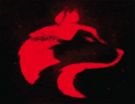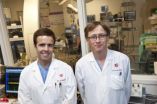(Press-News.org) A current focus in global health research is to make medical tests that are not just cheap but virtually free. One such strategy is to start with paper – one of humanity's oldest technologies – and build a device like a home-based pregnancy test that might work for malaria, diabetes or other diseases.
A University of Washington bioengineer recently developed a way to make regular paper stick to medically interesting molecules. The work produced a chemical trick to make paper-based diagnostics using plain paper, the kind found at office supply stores around the world.
"We wanted to go for the simplest, cheapest starting material, and give it more capability," said Daniel Ratner, a UW assistant professor of bioengineering and lead author of the paper recently published in the American Chemical Society journal Langmuir. "We also wanted to make the system as independent of the end applications as possible, something any researcher could plug into."
Many paper-based diagnostics are made from nitrocellulose, a sticky membrane used in pregnancy tests and by medical researchers to detect proteins, DNA or antibodies in the human immune system.
Ratner hopes to replace that specialized membrane with cheap, ubiquitous paper, and to use it for any type of medical test – not just the big, biological molecules.
The UW technique uses minimal equipment or know-how. The researchers used a cheap, industrial solvent called divinyl sulfone that can be bought by the gallon and has been used for decades as an adhesive. Ratner's group discovered they could dilute the chemical in water, carefully control the acidity, then pour it into a Ziploc bag and add a stack of paper, shake for a couple of hours, and finally rinse the paper and let it dry.
The dried paper feels smooth to the touch but is sticky to all kinds of chemicals that could be of medical interest: proteins, antibodies and DNA, for example, as well as sugars and the small-molecule drugs used to treat most medical conditions.
"We want to develop something to not just ask a single question but ask many personal health questions," Ratner said. "'Is there protein in the urine? Is this person diabetic? Do they have malaria or influenza?'"
To test their idea, the researchers ran the treated paper through an inkjet printer where the cartridge ink had been replaced with biomolecules, in this case a small sugar called galactose that attaches to human cells. They printed the biomolecules onto the sticky paper in an invisible pattern. Exposing that paper to fluorescent ricin, a poison that sticks to galactose, showed that the poison was present.
Now that they have proven their concept, Ratner said, they hope other groups will use the paper to develop actual diagnostic tests.
Leading proponents of paper-based diagnostics include the UW's Paul Yager, a professor of bioengineering who leads the Microfluidics 2.0 initiative, and George Whitesides, a chemistry professor at Harvard University. Ratner's group is working with a graduate student in Yager's lab to use the paper to print patterns of switchable networks.
Co-authors are Arthur Yu, Jing Shang at the UW; Fang Cheng, a former UW doctoral student now at China's Dalian University of Technology; Bradford Paik at the University of Minnesota; and Justin Kaplan and Rodrigo Andrade at Temple University in Philadelphia. The study was funded by the Washington Research Foundation and the UW's Royalty Research Fund.
INFORMATION:
For more information, contact Ratner at 206-543-1071 or dratner@uw.edu.
Sticky paper offers cheap, easy solution for paper-based diagnostics
2012-10-03
ELSE PRESS RELEASES FROM THIS DATE:
UC Davis smartphone application to allow instant polling for presidential debate Wednesday
2012-10-03
When President Obama and Republican challenger Mitt Romney square off in their first debate Wednesday, college students across the country will pilot test a new smartphone application that promises to make live polling possible for the first time on a large scale.
So far more than 175 political science professors nationwide have registered some 12,000 students to field test the real-time polling app, developed by researchers at the University of California, Davis, the University of Maryland, and the University of Arkansas, Little Rock.
"Most polling is done after a ...
The Asian-American vote in California
2012-10-03
LOS ANGELES, Calif. — Asian Americans — who account for 10 percent of registered voters in California — support a tax measure proposed by Gov. Jerry Brown, are closely divided on the death penalty ballot measure, overwhelmingly support affirmative action, and support tax increases on high earners to close the federal budget deficit, according to two new reports from the National Asian American Survey.
The reports — "The 2012 General Election: Public Opinion of Asian Americans in California" and "The Policy Priorities and Issue Preferences of Asian Americans in California" ...
Sea urchin's spiny strength revealed
2012-10-03
Sydney, Australia - For the first time, a team of Australian engineers has modelled the microscopic mechanics of a sea urchin's spine, gaining insight into how these unusual creatures withstand impacts in their aquatic environment.
The skeleton of the purple-spined sea urchin (Centrostephanus rodgersii), found in tidal waters along the coast of New South Wales, has many long spines extending from its core. These spiky features are used for walking, sensing their environment, and for protection against predators and rough surf.
The long hollow spines are made from a ...
Surgeons investigate whether rural colon cancer patients fare worse than urban patients
2012-10-03
CHICAGO—Colon cancer patients living in rural areas are less likely to receive an early diagnosis, chemotherapy, or thorough surgical treatment when compared with patients living in urban areas. Rural residents are also more likely to die from their colon cancer than urban patients, according to new research findings from surgeons at the University of Minnesota, Minneapolis, and the Minneapolis Veterans Affairs Medical Center. The study was presented earlier today at the American College of Surgeons 2012 Annual Clinical Congress.
Colorectal cancer is the third-leading ...
New fanged dwarf dinosaur from southern Africa ate plants
2012-10-03
VIDEO:
This shows the making of the Heterodontosaurus flesh model. Muscles, skin, scales and quills are added to a skull cast of Heterodontosaurus.
Click here for more information.
The single specimen of the new species was originally chipped out of red rock in southern Africa in the 1960's and discovered in a collection of fossils at Harvard University by National Geographic Explorer-in-Residence Paul Sereno, paleontologist and professor at the University of Chicago. Details ...
Innovative new defibrillator offers alternative for regulating heart beat
2012-10-03
OTTAWA, October 3, 2012 – A new ground-breaking technology was recently used at the University of Ottawa Heart Institute (UOHI) where two cardiologists, Dr. David Birnie and Dr. Pablo Nery, implanted a new innovative leadless defibrillator, the subcutaneous implantable cardioverter defibrillator (S-ICD), to a 18 year-old patient. Under Health Canada's special access program, this was only the third time this new type of ICD had been implanted in Canada.
Conventional defibrillators, known as transvenous defibrillators, are implanted with wires, called the leads, that snake ...
City of Ottawa sits atop soil, geologic features that amplify seismic waves
2012-10-03
Engineers and city planners study surface geology in order to construct buildings that can respond safely to earthquakes. Soft soil amplifies seismic waves, resulting in stronger ground motion than for sites built over bedrock. This study examines the local site response for the city of Ottawa, and the results indicate seismic waves may amplify ground motion greater than expected or referenced in the National Building Code of Canada.
Current knowledge of the earthquake activity in Ottawa area is based on less than 200 years of reported felt events and approximately ...
New Queen's University Belfast plasma jet gives 'cold' shoulder to superbugs
2012-10-03
Scientists at Queen's University Belfast have developed a new technique which has the potential to kill off hospital superbugs like Pseudomonas aeruginosa, C. difficile and MRSA.
As revealed in the most recent edition of leading journal PloS One, the novel method uses a cold plasma jet to rapidly penetrate dense bacterial structures known as biofilms which bind bacteria together and make them resistant to conventional chemical approaches.
The new approach developed by scientists in the School of Mathematics and Physics and the School of Pharmacy at Queen's passes electrical ...
Nursing outlook celebrates 60 years by publishing research on nurses in the media with UCLA
2012-10-03
St. Louis, MO, October 3, 2012 -- Historical impact and modern media stereotypes of nurses offer a fascinating contrast in the September/October issue of Nursing Outlook, published by Elsevier, the leading provider of scientific, technical and medical information products and services. Nursing Outlook celebrates 60 years of leading the nursing field in 2012 with two special issues.
"Supplement Issue: Nursing and the Media"
Millions of viewers watch nurses being portrayed on TV shows, news and movies. Yet, many of these portrayals display an outdated and incorrect image ...
New gender benchmarking study finds numbers of women in science and technology fields alarmingly low
2012-10-03
New York, October 3, 2012 – In the first study of its kind, researchers have found that numbers of women in the science, technology and innovation fields are alarmingly low in the world's leading economies, and are actually on the decline in others, including the United States. The study maps the opportunities and obstacles faced by women in science across the US, EU, Brazil, South Africa, India, Korea and Indonesia. It was conducted by experts in international gender, science and technology issues from Women in Global Science & Technology and the Organization for Women ...



